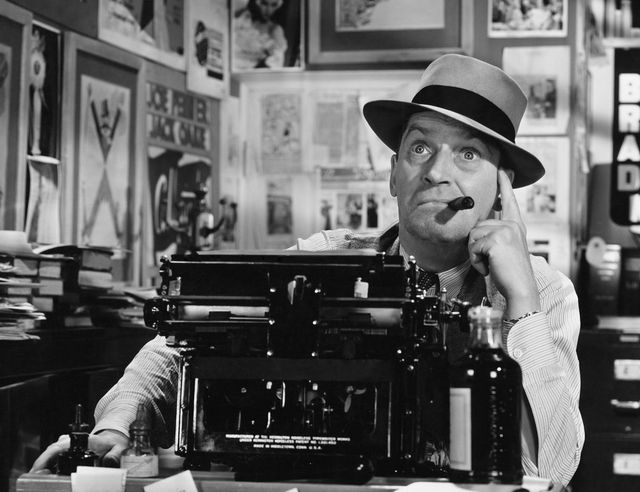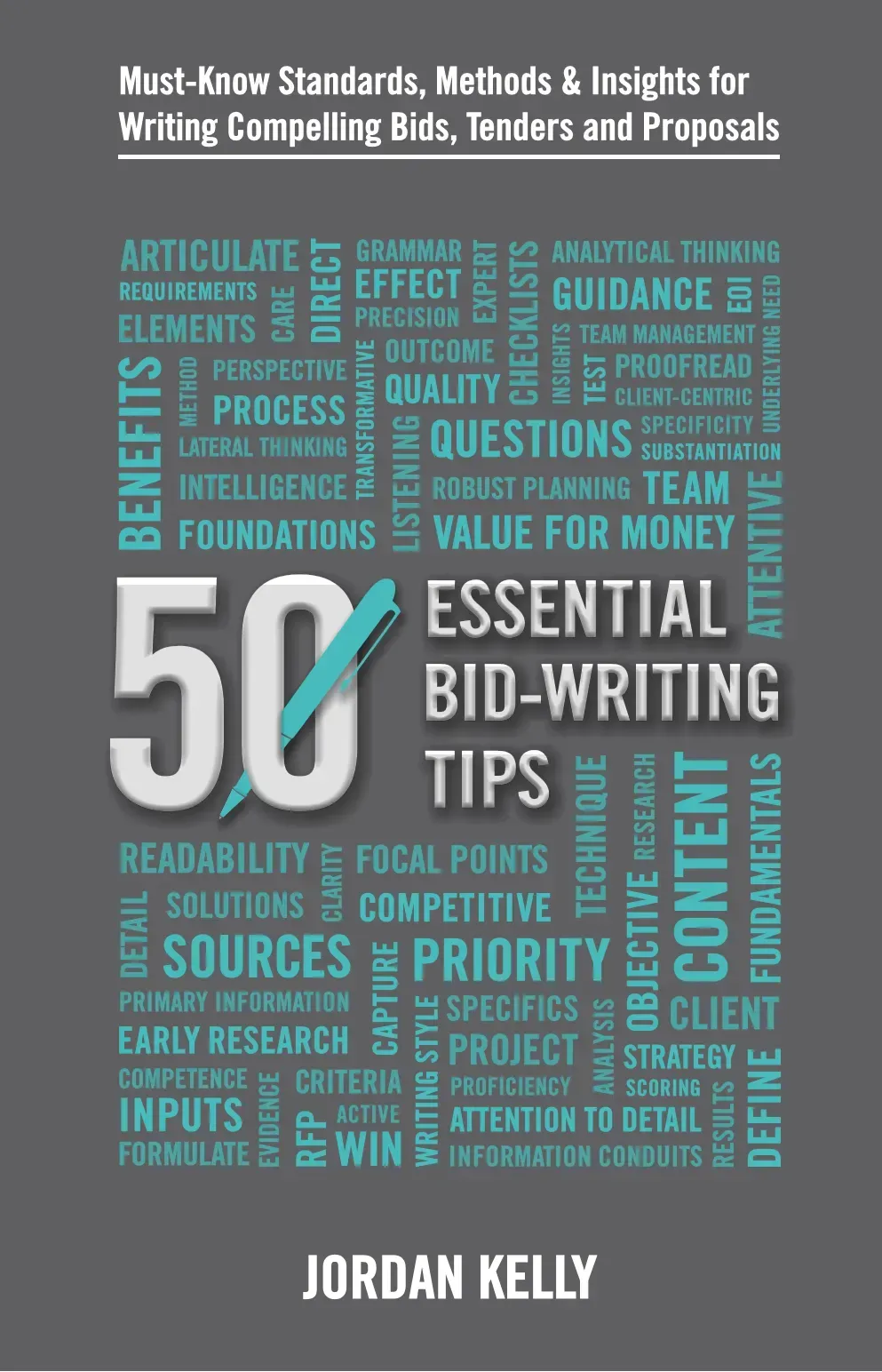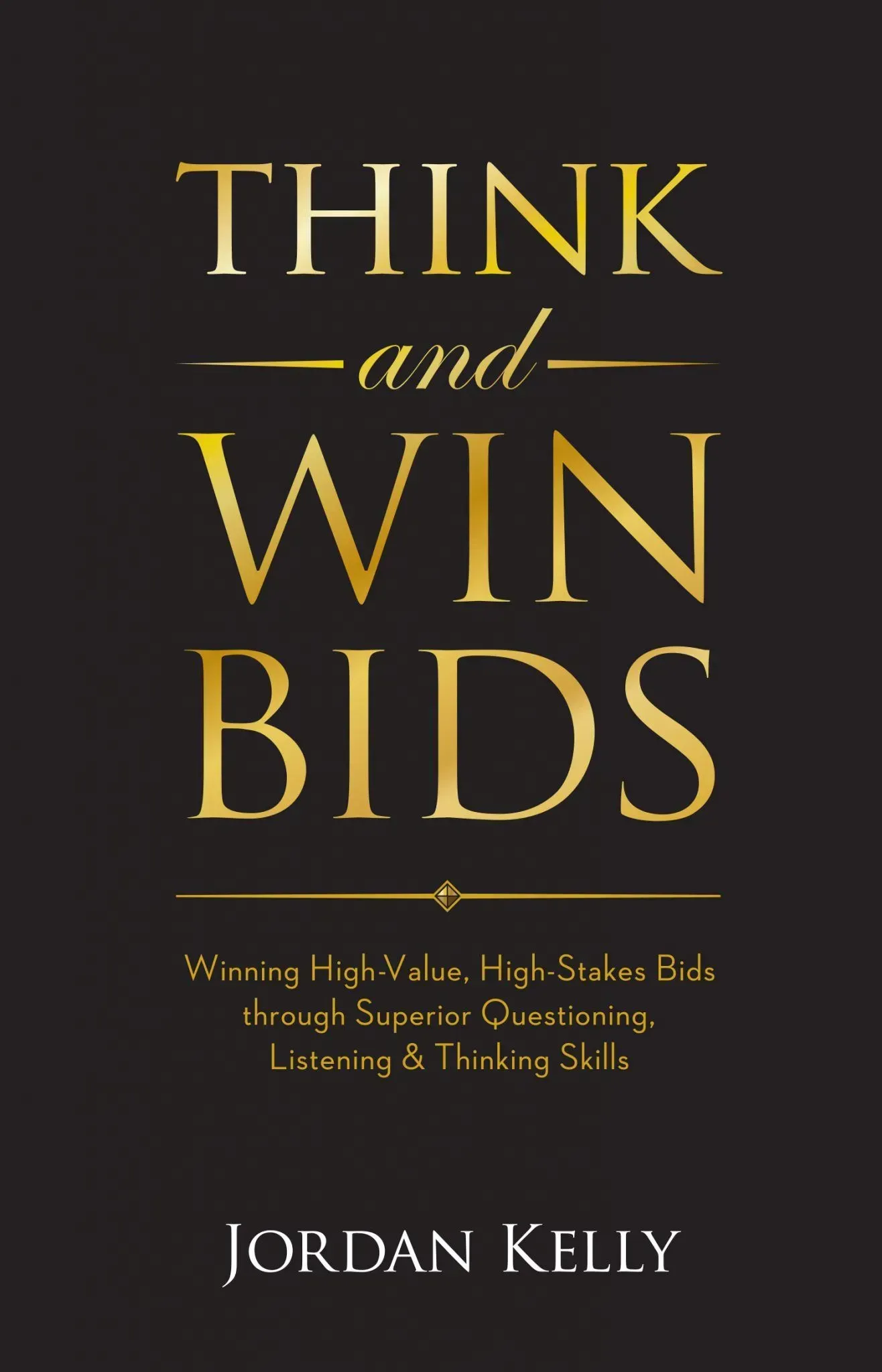CATEGORIES:

To a very large degree, the effectiveness of the bid writer’s output is only ever going to be as good as the quality of the strategist’s product.
The writer’s ability to produce a truly client-focused and compelling final product is contingent upon your having first formulated a solid bid strategy . . . and having produced a comprehensive, solid, written guiding blueprint.
Tip No. 1 – Clarity of Strategy
A clear strategy paves the way for clear articulation.
As in strategy, so in articulation.
Never put pen to paper on an important, high-value submission without first producing a documented blueprint of your substance and intended content.
Tip No. 2 – Benefits vs Features
Think and write in terms of benefits, more so than features.
Be cognisant, therefore, of the distinction between benefits and features i.e. the benefit results from the feature.
Join the dots for the client organisation and its evaluation team members; don’t leave them to extrapolate the benefit from the feature for themselves.
(A rider here: If you’re selling to engineers or other “technical” buyers, don’t omit features – but do make sure you explain their benefits in the context of the project or procurement in question.)
Tip No. 3 – Straight Answers
Answer the question.
Don’t devolve into evasive writing because you don’t know how to answer a question, or because you have insufficient material to address it with substance.
Have the integrity to correct the problem at its source, seeking out the information you need, or going back into the planning room if your content is lacking as a result of an incomplete or incoherent strategy.
Tip No. 4 – Substantiate Your Claims
Don’t let a lack of substantiation erode your credibility.
One of the most common flaws in Expression of Interest (EOI) and Request for Proposal (RFP) responses is the proliferation of “empty” claims – claims made with no attempt to provide specific points of proof or any other form of substantiation.
Being guided by a formal, written strategy is the first step in ensuring against an empty, substance-less submission.
Tip No. 5 – Process, Don’t Parrot
Think for yourself.
You’ve heard the adage, “A consultant is someone who asks for your watch, tells you the time and charges you for it.”
A similar concept underlies the common tendency to either repeat verbatim, or to minimally re-phrase, large tracts of the client’s own EOI or RFP documentation. That demonstrates neither any conduct of your own research, nor employment of your own thought processes.
THINK AND WIN BIDS
Winning High-Stakes, High-Value Bids through Superior Questioning, Listening & Thinking Skills
(Book)
The three fundamental skills of a genuinely sharp, sustainably successful bid professional are the ability to think, listen and ask quality questions.
Furthermore, formulating successful business development and bid strategies is the process of well-directed research and thinking; not the product of tools and templates.

50 ESSENTIAL BID-WRITING TIPS
Must-Know Standards, Methods & Insights for Writing Compelling Bids, Tenders and Proposals
(Book)
Intentional successful bids are guided by a strategy that is well-researched, customer-centric / client-centric, substance-based, savvily-formulated, and documented in detail.
It is the bid writer's job to ensure that strategy (the primary – but not exclusive – role of which is to address all known selection criteria) is then articulated clearly, consistently and compellingly throughout every section of the proposal.



